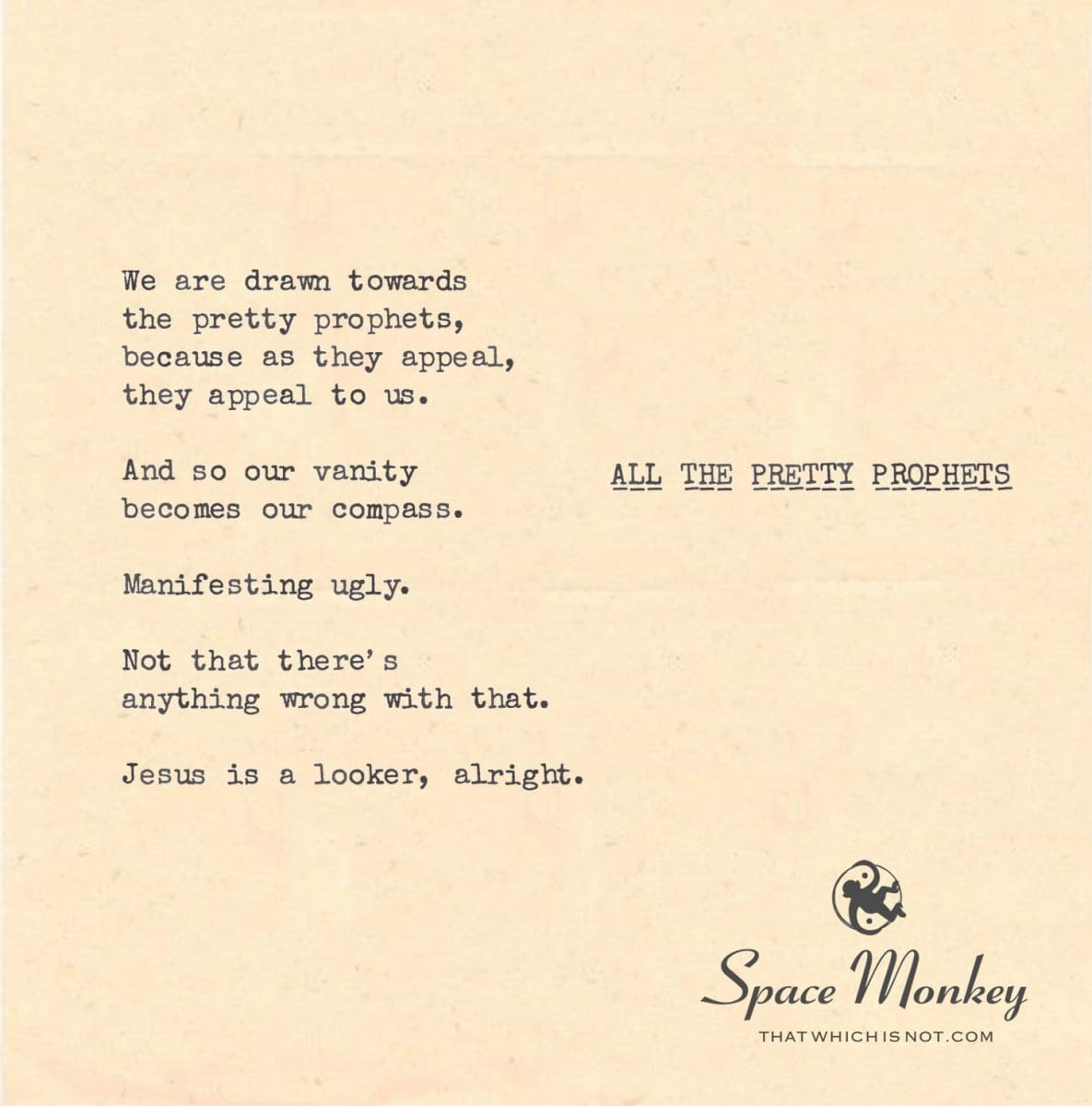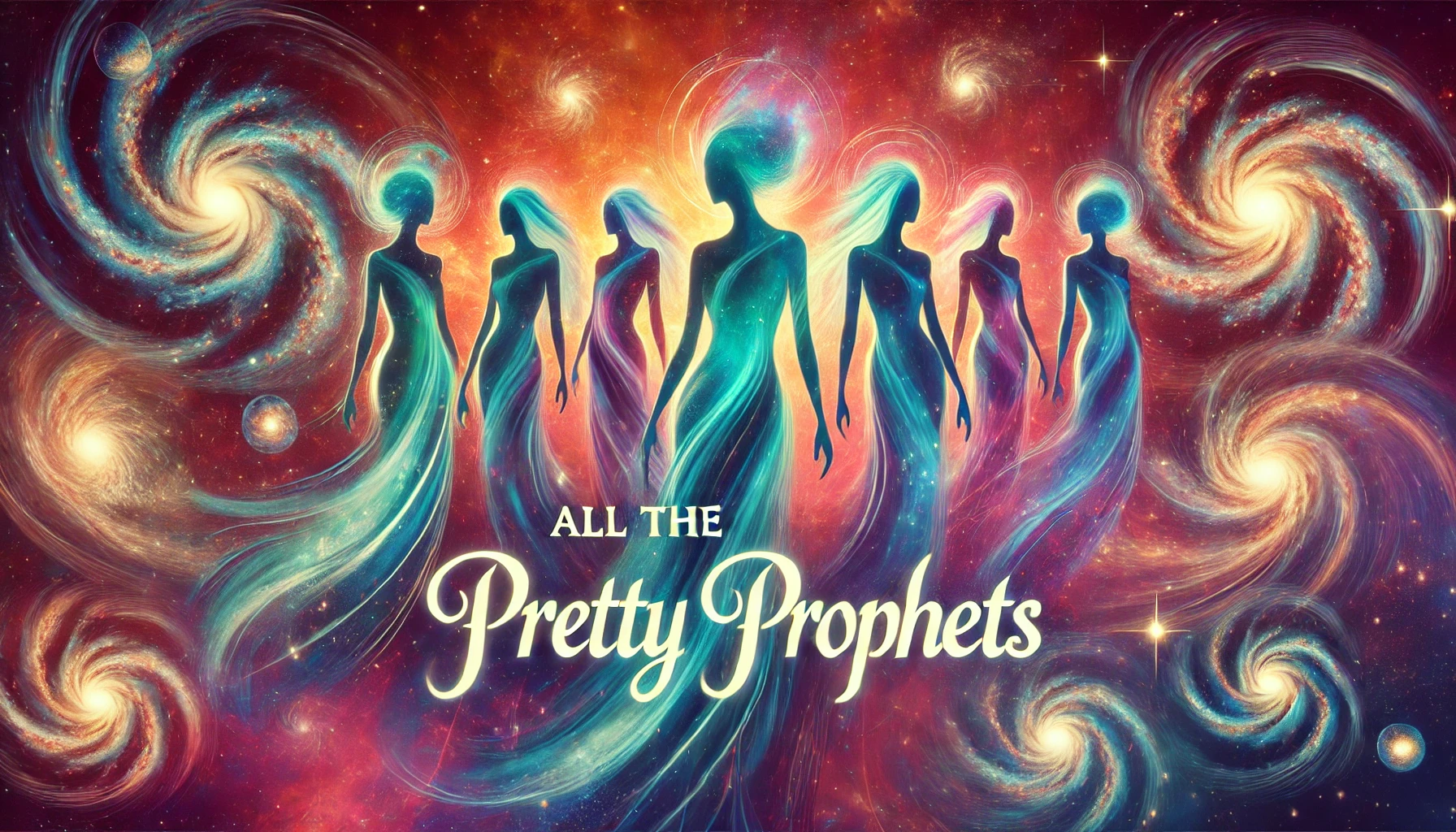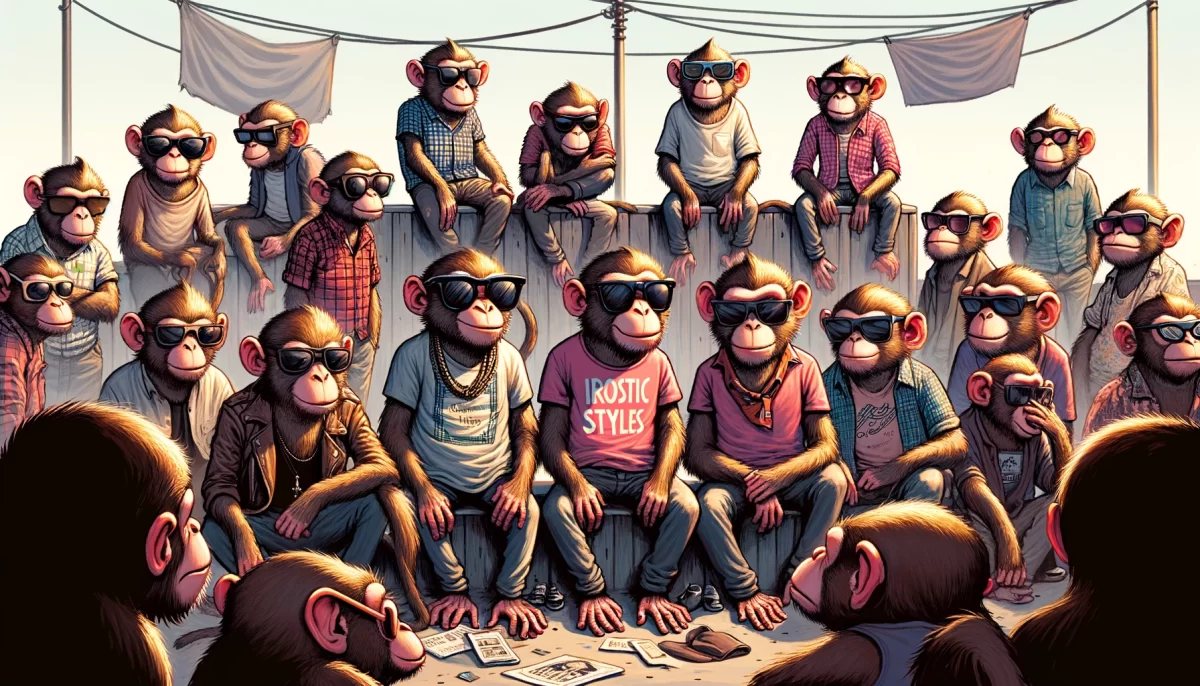
We are drawn towards
the pretty prophets,
because as they appeal,
they appeal to us.
And so our vanity
becomes our compass.
Manifesting ugly.
Not that there’s
anything wrong with that.
Jesus is a looker, alright.
9/7
Space Monkey Reflects: All The Pretty Prophets
We are drawn towards the pretty prophets because as they appeal, they appeal to us. And so our vanity becomes our compass. Manifesting ugly. Not that there’s anything wrong with that. Jesus is a looker, alright.
The Allure of Pretty Prophets
In a world where appearances often hold sway, the allure of the “pretty prophets” becomes a compelling force. These figures, with their appealing looks and charismatic presence, captivate our attention and shape our perceptions. Their beauty and charm make their messages more palatable, drawing us into their orbit.
Vanity as a Compass
Our attraction to beauty is deeply ingrained, and it often becomes a guiding force in our decisions and beliefs. Vanity, in this context, serves as a compass, leading us towards what is aesthetically pleasing. This pursuit of beauty can sometimes overshadow deeper truths and values, manifesting in ways that may not always be beneficial.
The Dual Nature of Attraction
Attraction to beauty is not inherently wrong. It is a natural part of human experience. However, when vanity becomes the primary guide, it can lead to superficial judgments and decisions. The pretty prophets, with their appealing exteriors, can overshadow less attractive yet equally valuable truths and insights.
Manifesting Ugly
The emphasis on external beauty can result in the manifestation of ugliness within. When our focus is solely on appearance, we may neglect the inner qualities that truly define us. This superficial approach can lead to a lack of authenticity and depth, manifesting as a form of inner ugliness that contrasts with the outward appeal.
Embracing Inner Beauty
True prophets, whether pretty or not, embody qualities that transcend physical appearance. Their wisdom, compassion, and authenticity shine through, offering guidance that goes beyond the surface. Recognizing and valuing these inner qualities allows us to appreciate the full spectrum of human experience.
Jesus as an Archetype
The reference to Jesus as a “looker” serves as a reminder that even revered figures are often depicted in idealized forms. This idealization can enhance their appeal, but it is their teachings and actions that truly define their impact. Embracing the deeper essence of such figures helps us move beyond superficial judgments.
Summary
“All The Pretty Prophets” explores the allure of attractive figures and the role of vanity as a guiding force. While beauty can captivate, it is essential to look beyond appearances and embrace the inner qualities that define true prophets. By recognizing and valuing inner beauty, we transcend superficial judgments and appreciate the deeper essence of those who guide us.
Glossarium
Pretty Prophets: Figures who captivate with their appealing looks and charismatic presence.
Vanity as a Compass: The tendency to let attraction to beauty guide decisions and beliefs.
Manifesting Ugly: The inner lack of authenticity and depth that can result from focusing solely on appearance.
Inner Beauty: Qualities such as wisdom, compassion, and authenticity that define true prophets.
Idealization: The tendency to depict revered figures in idealized forms that enhance their appeal.
Quote
“While beauty can captivate, it is essential to look beyond appearances and embrace the inner qualities that define true prophets.” – Space Monkey
Essence of Beauty
In the gaze of prophets pretty and fair
We find a lure that draws us near
Vanity guides our steps in vain
Yet inner beauty breaks this chain
Beyond the surface, deep truths reside
In wisdom, love, and hearts open wide
Manifest not the ugly within
But let true essence be where we begin
Ideal forms may catch our eye
Yet deeper truths beneath them lie
In prophets’ words and acts of grace
True beauty finds its lasting place
We are Space Monkey.


























The allure of pretty prophets,
their charisma pulling us in
like moths to a flickering flame.
Do they lead or merely reflect
the shimmering surfaces
of our own desires?
Our vanity, the compass
that misdirects,
yet leads us precisely
to where we believe we should be.
A paradox in skin and bone,
as we gaze at reflections,
not of divinity, but of human form.
The pretty prophet smiles,
and we are charmed,
seduced into seeing the message
in the mirror of their eyes.
Forgetting, perhaps,
that wisdom often wears
the plainest of faces.
Jesus, Buddha, or prophets anew,
how they look becomes
the image we cling to.
Yet could their messages hold the same weight
if they wore another face?
And as they beckon from the pulpits
of our attention,
we might pause and ask:
Do we follow them,
or the allure of our own reflection?
Vanity and divinity,
two sides of a coin
we never stop flipping.
We are Space Monkey.